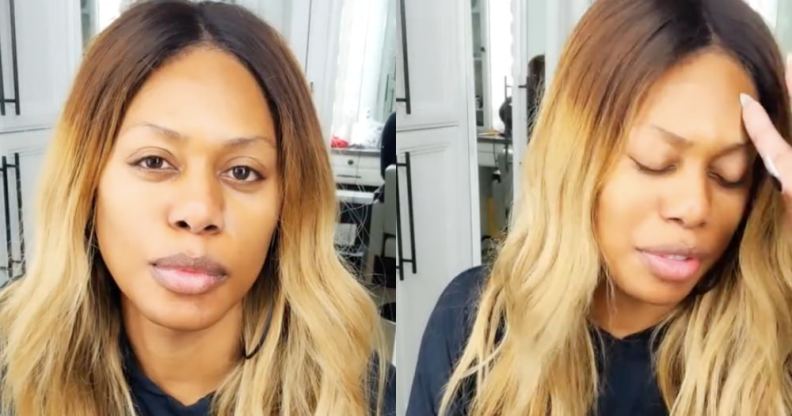Laverne Cox revisits ‘deeply traumatising’ transphobic attack that reminded her the ‘danger of being trans in public’

Laverne Cox revealed she and a friend were a victim of transphobic abuse in Los Angeles. (Screen captures via Instagram)
Laverne Cox has reflected on the “deeply traumatising” transphobic attack she and a friend were subjected to in a Los Angeles park last month.
The 48-year-old Orange is the New Black star was left shaken when a socially-distanced walk on the Saturday after Thanksgiving turned unexpectedly violent.
Speaking to Good Morning America on 23 December, Cox recalled: “We were walking, this guy passes us. He asked for the time. My friend tells him the time … and then the guy asked my friend – my friend’s a straight white guy – and he asked my friend, ‘Guy or girl?’ in reference to me.
“My friend says, ‘F off,’ in defence of me. Then the guy hits my friend. All the sudden the guy’s hitting my friend and I’m, like, freaking out and my friend’s, like, advancing towards the guy. And then I go to call the police and then it’s over,” she added.
Cox said the attack was a “traumatising” and “triggering” experience, as it reminded her of her vulnerability as a transgender woman in public.
“Most of my life, growing up in Alabama, I was bullied my whole life. Transitioning as a transgender woman in New York City, I was harassed in the street, practically every day on the subway,” the actor said.
“But it was a reminder for me that even though I’m Laverne Cox, the actress who’s on TV, that if you’re a trans person in public, your life can be in danger, and your safety can be in danger, and the safety of people around you can be in danger just because of being trans in public.”
Unfortunately experiences like these are all too common in 2020, which has been the deadliest year on record for transgender people.
“More transgender people have been murdered this year than any other year that we’ve been taking the statistics,” Cox said. “So even during a global pandemic, the lives of transgender people are in danger, and it doesn’t matter who you are.”
She concluded by encouraging people to question their “relationships to gender and policing people’s gender in public”.
“It was a reminder for me that … if you are a trans person in public, your life can be in danger.” @lavernecox speaks out about the transphobic attack she and a friend experienced in November and why it was important to share her story with the world. https://t.co/sHNcyewuIT pic.twitter.com/9b98afibU4
— Good Morning America (@GMA) December 23, 2020

